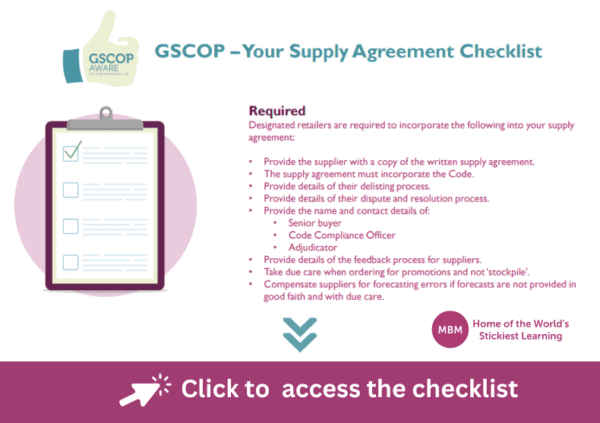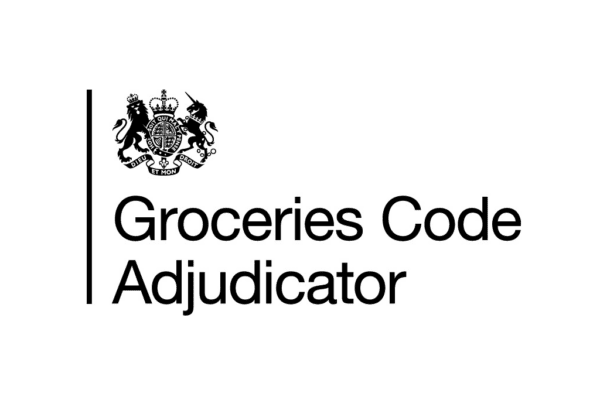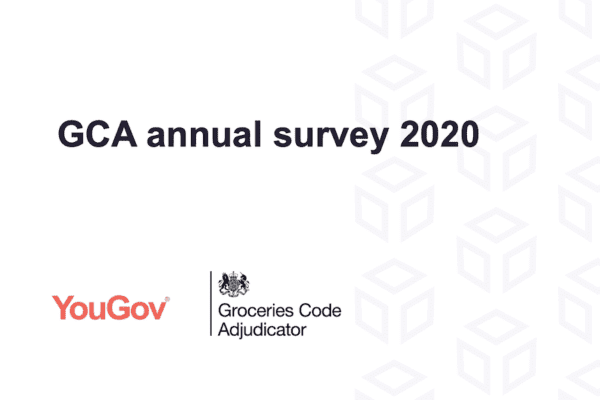Demystifying GSCOP Written Supply Agreements
Do you supply one of the big 12 UK grocers? Have you a GSCOP compliant written supply agreement with each of those retailers? According to YouGov (2016), 48% of you haven’t! Should you have one? And what are the issues if you don’t? And, most importantly, should you be worried?
Should You Worry?
To answer the third question first, the simple answer is NO. This is one of the most common misconceptions about GSCOP. Yes, it is a legally binding piece of legislation. However, it is on certain retailers only. Suppliers cannot be in breach of GSCOP. There is no GSCOP risk to suppliers plain and simple!
GSCOP and Competition Law
Myth two is that GSCOP is part of Competition Law. The myth goes that suppliers should worry about, amongst other things, potentially facing price-fixing accusations. In instances that they are not conscientious about stating that ‘retail pricing is at the sole discretion of the retailer’. Or failing to quote ‘recommended retail or selling price’ whenever suppliers’ mention the retail price, either verbally, written or electronically. To be clear, GSCOP has nothing whatsoever to do with the very separate piece of legislation that is Competition Law.

Supplier sales teams must be very aware of their responsibilities under Competition Law. This is something that suppliers can breach, and the possible penalties are severe. Consequently, if you are in any doubt, you should seek formal legal advice.
Take a look at Morrisons’ approach to GSCOP.
Should You Have a Written Supply Agreement?
So why should it bother you to have a GSCOP written supply agreement with your customers? Well, because it offers you certain protections from potential abuses of power by the designated retailers covered by the Code. Some of which we will illustrate and explain below:
What Does GSCOP Stand For?
The third biggest misconception about GSCOP is what the actual acronym stands for. It is not Groceries Supply (or Supplier) Code of Practice as most think. The pithy and catchy full title is:
The Groceries (Supply Chain Practices) Market Investigation Order 2009.
It covers 12 Designated UK retailers: Tesco, Asda, Sainsbury, Morrisons, Aldi, Lidl, CoOp, Marks and Spencer, Iceland, Waitrose, B&M, Home Bargains and Ocado. [The latter two only being added to the original 10 in November 2018.]
What Is a ‘Grocery’ Product?
There are also some interesting definitions of what a ‘grocery’ product in the Code is. Food, Pet Food, Cleaning Products, Toiletries, Drinks and Household products are ‘groceries’. However, lots and lots of other products that supermarkets sell are technically not covered. Tobacco, Plants and Flowers, Toys, Perfume and Cosmetics, Gardening Products, Electrical and Kitchen Hardware, for example. In practical terms, most of the designated retailers have, however, incorporated all categories they sell into their GSCOP obligations.
The heart of the Code, and the heart of any protections you may have from it, are all contingent on the written supply agreement. The Code states that whenever the supplier delivers groceries, the retailer must provide a written supply agreement. This written agreement must incorporate the Code.
Each designated retailer has put in place different interpretations of what is and what constitutes a written supply agreement. Whichever format they use, you are, however, entitled as a supplier to have a copy in writing. Moreover, it must cover certain things.
To understand fully what should be in your written supply agreement, download the handy Making Business Matter GSCOP Written Supply Agreement Checklist here:

Your Responsibilities
You need to check you are completely happy with your written supply agreement. The two most important words in the GSCOP legislation are REQUEST and REQUIRE. You need to be keenly aware of their meanings, and the differences, between REQUEST and REQUIRE.
There are only two things that retailers can REQUIRE of suppliers in the Code and lots and lots of things they cannot.
However, there are very many things that they are perfectly entitled to REQUEST. All of which could potentially cost you a lot of money. Any REQUEST they do make of you must be fair and not made subject to any duress.
For full details of what retailers can REQUEST versus those they can and cannot REQUIRE download the handy Making Business Matter GSCOP Written Supply Agreement Checklist above.
Email Contract Safety Tips
Since the validity of email contracts is generally accepted under the law, it is important to exercise caution when doing business through email. To that end, the following tips may be helpful:
- A contract need not be physically signed to be agreed to.
- A contract may be created over a series of emails, not just one.
- In some instances, a preliminary email may constitute a binding contract regardless of it referencing a future formal agreement that has yet to be agreed to.
- Beware of creating an ‘implied-in-fact’ contract, which may occur through industry custom and your conduct.
- Beware of using certain terms unless you intend their meaning. ‘Accept’, ‘agreement’, and ‘agree’ can all be viewed as a binding acceptance of a contract in a court of law. The terms “preliminary negations” and “non-binding proposal” would be better substitutes if an actual contract is not intended.
- If certain conditions are desired before entering into a contract, state them clearly. Do not create the impression of a meeting of the minds if that is not the intent.
Training Obligations
Each of the retailers covered by the Code must, by law, train their commercial teams. They must be aware of their legal responsibilities regarding the Code and compliance with it. All new commercial team members must complete training. Furthermore, all teams must re-train each year. Last years YouGov survey into the practical effects and workings of the Code commissioned by the Groceries Code Adjudicator (GCA) showed that 50% of suppliers had had no training in the Code. This percentage rose the smaller the supplier sharply.

The potential imbalance of well trained and well-versed buyers up against, and negotiating with, small suppliers with no knowledge, or no real practical knowledge, of the Code, is a recipe for suboptimal agreements that can and will cost those suppliers money.
Here at MBM we have, for example, come across small produce suppliers who thought it was part of the T’s & C’s of doing business with one of the major multiples to pay first-class rail fares and put up technical managers in 5-star hotels whenever they made visits to their farms!
Lastly, a final top tip. If you are one of the 50% of suppliers who have had no formal training in the Code and/or one of the 48% without a formal and compliant written supply agreement, get some training and advice from Making Business Matter.




